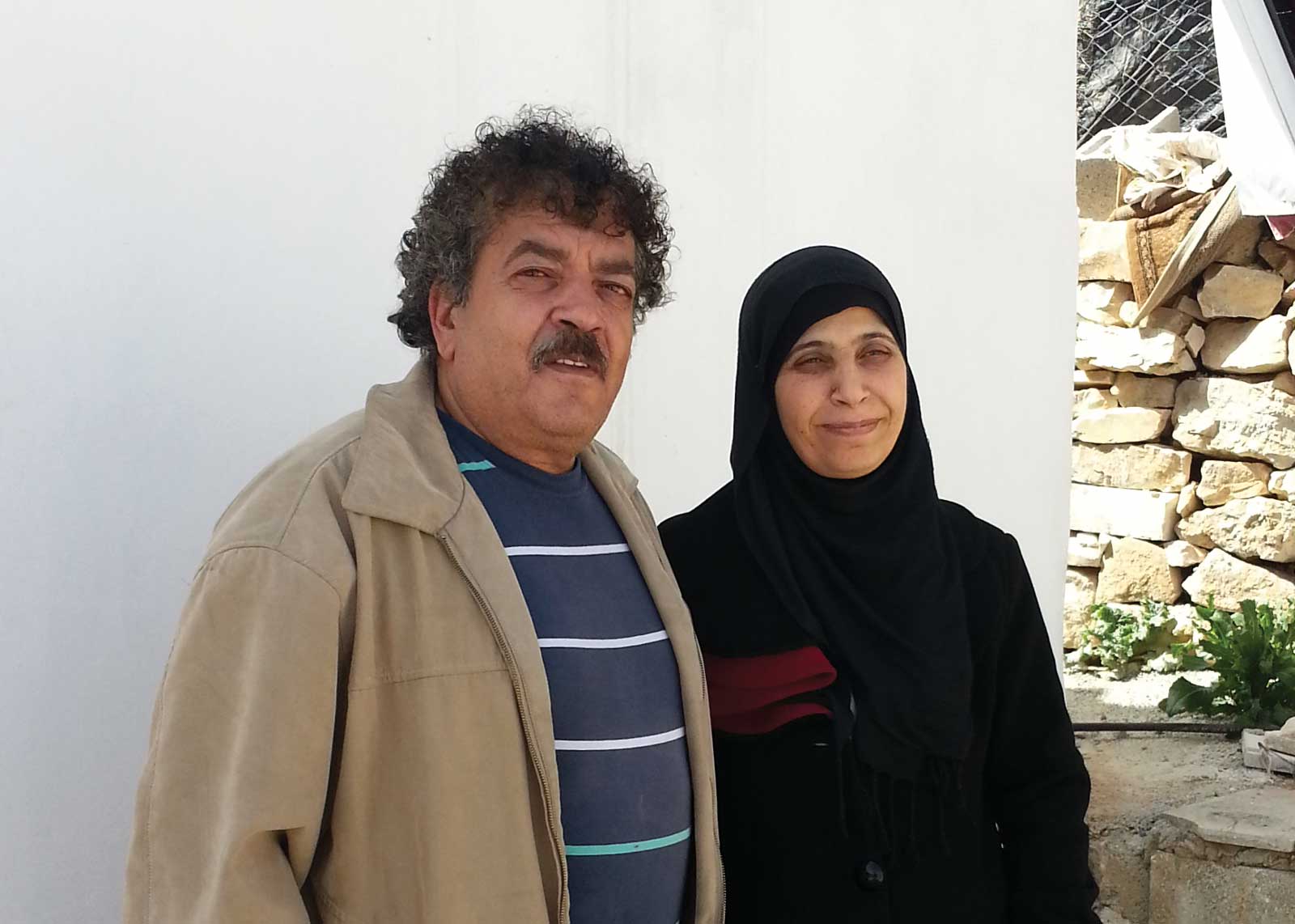Home Demolitions in the West Bank
Village of Anata

Beit Arabiya — House of Peace — located on a steep and rocky hillside that runs down to a ravine at the bottom of a narrow canyon, is named in honor of Arabiya Shawamreh, whose home has been demolished seven times by the Israeli authorities.
In the early 1990s, Arabiya and her husband Salim purchased a small plot of land in the village of Anata, northeast of Jerusalem, close to the Shuafat refugee camp where Salim grew up. Over the course of four years, they applied three times for a building permit with the Israeli Civil Administration, but were denied each time. Each application cost them $5,000. Their land is in Area C — the portion of the West Bank that is under the full control of Israel.
Though they were denied a permit, in 1994, Arabiya and her husband Salim decided to build a family home for their seven children at a cost of $20,000. They filed an appeal with the Israeli Supreme Court to obtain a building permit, but they were again denied — for the fourth time. In July 1998, a force of some 300 soldiers came unannounced and demolished their home, leaving the family traumatized and financially ruined.
“At least a third of all Palestinian homes in East Jerusalem lack Israeli-issued building permits, which are difficult to obtain, potentially placing over 90,000 residents at risk of displacement, which has a psychological impact.”
Humanitarian Concerns, OCHA
With support from the Israeli Committee Against House Demolitions (ICAHD), the Shawamreh family decided to rebuild their home. The newly constructed home was demolished before the family could move in. With the help of neighbors and the ICAHD, the family again rebuilt the home a third time. After their first night, the house was again demolished.
In 2003, the Shawamreh home was rebuilt for the fifth time. Recognizing that they would never be allowed to live there, the family dedicated it as a peace center — Beit Arabiya — to challenge the occupation. The building has been demolished and rebuilt twice since then.

Construction in Area C
Today, facing Beit Arabiya on the opposite side of the canyon, is a fortress with watch towers — the principal interrogation and detention center of the Israeli security service. Arabiya and Salim’s home is a center for peace in the memories of Rachel Corrie and Nuha Sweidan, two women (an American and a Palestinian) who died resisting home demolitions in Gaza. The Shawamreh family now lives in an apartment in Kafur Akab, next to the Qalandiya refugee camp.
“Any destruction by the Occupying Power of real or personal property belonging individually or collectively to private persons, or to the State, or to other public authorities, or to social or cooperative organizations, is prohibited, except where such destruction is rendered absolutely necessary by military operations.”
Article 53, Fourth Geneva Convention, 1949
For decades, Israeli officials have violated the international law of occupation, prohibiting the destruction of property except for reasons of military necessity. Arabiya, Salim, and their children, who live with long-lasting psychological damage from the repeated demolitions of their home, are paying the price. After the first demolition, Arabiya was unable to speak for a month and remains fragile psychologically. Salim and Arabiya’s children still suffer, especially from nightmares and panic attacks.
“Of all the terrible things I have seen in my 17 years with Rabbis for Human Rights (RHR), nothing quite matched the sight of a child coming home from school to discover that his/her home has been demolished. S/he had a home when s/he went off in the morning, and now there is rubble. I have seen all too many times how more than just the physical home is demolished. Families are demolished. I will never forget the fearful families literally sitting on suitcases, and looking out the window every morning. Maybe this is the day that their home will be surrounded by soldiers and the bulldozer is approaching. I will never forget the six-year-old child asking his parents, ‘If they come to demolish our home again, do you think we could save my bicycle?’”
Rabbi Arik Ascherman, Rabbis for Human Rights

